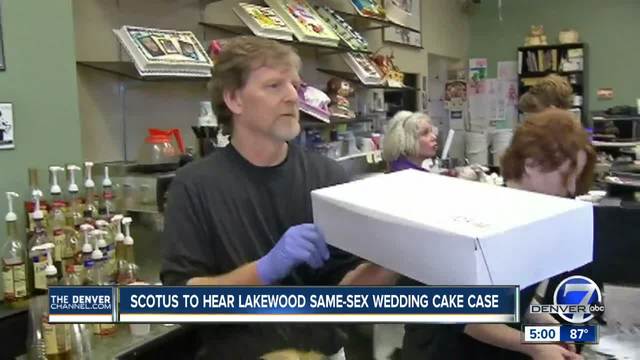
When it comes to an anti-discrimination law, should someone be compelled to bake a cake if it’s a violation of their First Amendment right to Free Speech? Masterpiece Cakeshop v. Colorado Civil Rights Commission (2017) will answer this question in the Supreme Court on Dec. 5, 2017th.
Now, here’s the facts. As the owners of Masterpiece Cakeshop, Jack C. Phillips (Petitioner) didn’t want to make a cake for a gay couple since it was against his religion. The Colorado Civil Rights Commission found him guilty of sexual discrimination under the the Colorado Anti-Discrimination Act. In doing so, Phillips cited his first amendment right to free speech.
This is the issue before the Supreme Court: Whether CADA’s application to compel Phillips to create a cake violates his religious beliefs about marriage violates the Free Speech or Free Exercise Clauses of the First Amendment.
In review of amici submitted to the Court, the International Christian Photographer filed amici curiae in interest of the petitioner. They said: “The Lower Court decision will curtail the rights of many citizens and businesses, not just cake designers and photographers.” This brief was filed in support of the Petitioner.
Conversely, the Legal Scholars In Support Of Equality submitted an amici brief in support of Respondents. They said: ” The status-conduct argument was used for many decades to justify the subordination of LGBT people. It has been revitalized in this case, and the Court should reject it.” This brief was filed in support of the Respondents.
This case has been through the courts. First, an administrative judged decided in favor of the respondents. Next, an appeals court decided in favor of the plaintiffs. Finally, Masterpiece Cakeshop petitioned the Supreme Court for certiorari, which was granted.
Free Speech cases tend to be stronger than dignity cases. In the past, Free Speech case have been decided by a 8 to 1 vote for this right. On the other hand, dignity cases have been decided on a narrow vote of 5 to 4 in support of them. Presently, Free Speech cases have a stronger basis for this case.
When it comes to Free Speech, the Supreme Court has strongly protected this right in the past. In Snider v. Phelps, the Supreme Court upheld the Westboro Baptist Church’s right to protest a funeral of soldier. This case looked at the slippery slope argument and can government censor speech? The Court sided with the Phelps and felt free speech was an important right.
In summary, this case will be interesting to watch. When it’s decided, it will answer the question: “Do businesses have religious protection?” Also, it will decide another question: “Can businesses discriminate against gays?” This case is pending before the US Supreme Court.